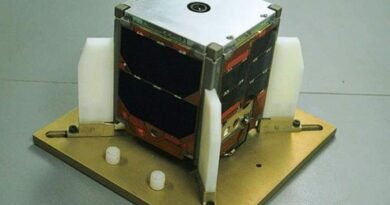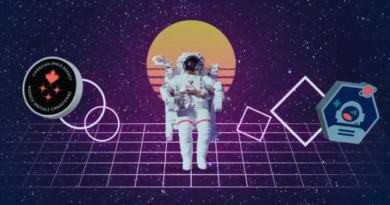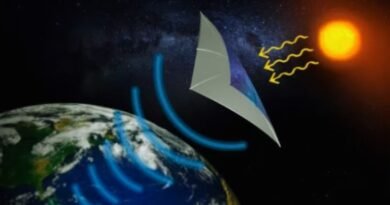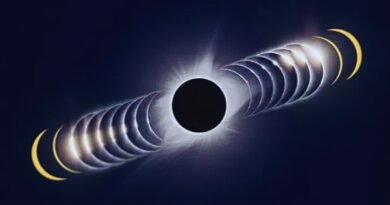Join NASA’s Message in a Bottle: Your Name on the Europa Clipper Mission!
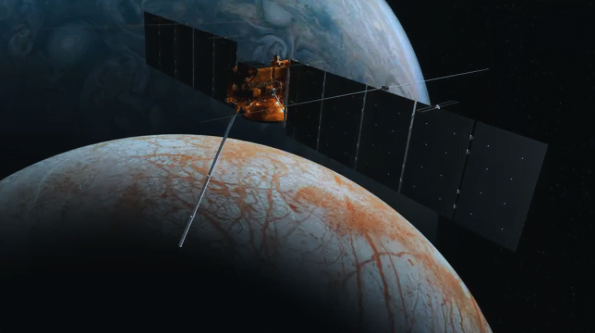
In the envisioned 2024 mission, assuming all goes as planned, a spacecraft named the Europa Clipper is set to embark on a fascinating journey to explore Jupiter’s icy moon adorned with rust-colored gashes. This lunar odyssey involves navigating the gravitational tides of Jupiter, exposing half of the spacecraft to the vastness of space while the other half faces the orb in orbit. Equipped with advanced instruments such as a high-tech spectrometer, radar system, and optical imager, the Europa Clipper aims to uncover evidence of alien habitats.
Remarkably, you can be a part of this cosmic adventure by signing up for NASA’s free “Message in a Bottle program” here. Act fast, as the campaign closes at 11:59 p.m. EST on Dec. 31 (0459 GMT on Jan. 1). Currently, nearly 900,000 names have already been submitted.
If you’re wondering about the significance of this initiative, you’re not alone. Contemplating the act of affixing my name to this cosmic endeavor led me into profound reflections. After all, the Europa Clipper won’t be making a landing, and there’s no sentient being on Europa to receive our messages. In the grand scheme, our names become mere intangible concepts denoting our existence, a topic that linguists and philosophers have delved into for years. The question arises: without us, what are our names? And without anyone to read them, where do they truly reside?
This contemplation took me on a thought-provoking journey, feeling like I was participating in a highly abstract concept. Despite this, I realized that the essence of sending our names to Europa may not lie in physical or theoretical consequences. Instead, it might be about defying expectations and placing our names where they’re not conventionally supposed to be. While we are tethered to Earth, modern technology allows our names to transcend boundaries.
Even if our names lack a tangible presence, the act of having them “travel” across light-years and potentially transcend dimensions adds a layer of significance. However, the question arises: can a name truly “be” somewhere unless there’s someone in that place to think of it? Considering Europa, devoid of sentient beings (to the best of our knowledge), NASA’s “Message in a Bottle” program emerges as a unique opportunity. It enables our names to find a residence beyond the confines of Earth, the only realm where they’ve been contemplated.
After navigating through these reflections and extending the cosmic invitation to my family members (eliciting a thumbs-up emoji and an “ok” from my father), I unraveled the intricacies of how the Message in a Bottle program operates.
In essence, scientists at NASA’s Jet Propulsion Laboratory crafted a special “silicon wafer” resembling a super shiny, metallic disk. This wafer allows the transformation of small images, like a bubble letter “A,” into remarkably tiny yet readable text known as “bitmaps.” Each entered name undergoes this process, reducing it to text on a scale of 75 nanometers, merely a thousandth of the width of a human hair. These names are then “stenciled” onto silicon microchips, originating from the original wafers, using an electron beam. All these chips are loaded onto the Europa Clipper, destined to travel over a billion miles, propelled by the forces of other planets until it reaches Europa’s gravitational embrace.
During its mission, the Europa Clipper is anticipated to make nearly 50 flybys of the moon, with closest-approach altitudes as low as 16 miles (25 kilometers) above the surface. Simultaneously, it will diligently search for evidence of subsurface oceans and potentially uncover biosignatures.
In a poetic echo of one of my favorite paragraphs from the novel “Red Mars,” microchips engraved with words representing nearly 1 million humans will find a home in a location where Earth appears as nothing more than a distant star.
In the grand scheme, this entire undertaking may not alter the fabric of the cosmos, but its impact on perspective could be profound.

